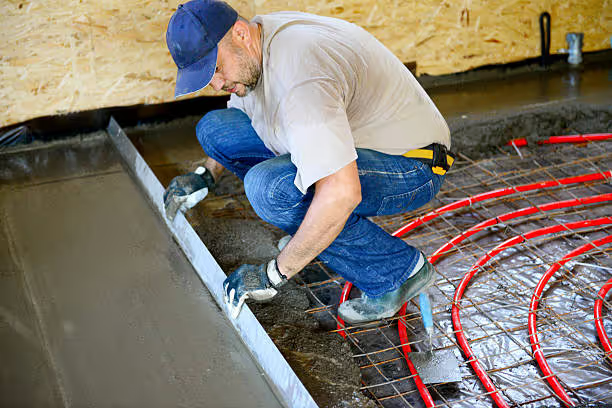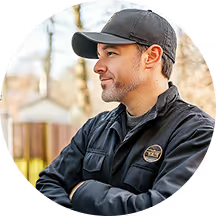Heating Repair in Glen Cove, NY
A reliable heating system is essential for Glen Cove winters. Whether you rely on a gas furnace, oil unit, or a heat pump, timely heating repair in Glen Cove, NY keeps your home safe, comfortable, and energy efficient. This page explains common heating problems in the area, homeowner troubleshooting, what to expect during a professional repair, typical parts that fail, emergency response options, and maintenance steps that prevent repeat breakdowns.

Why prompt heating repair matters in Glen Cove, NY
Glen Cove sits on Long Island’s North Shore, where cold snaps, coastal humidity, and salt air can accelerate wear on heating equipment. Older homes with original ductwork or cast-iron radiators are common here and present different challenges than newer, high-efficiency systems. Left unaddressed, small issues (short cycling, thermostat faults, low refrigerant) become expensive failures like compressor or heat exchanger damage and can raise safety concerns such as carbon monoxide risk. Quick, informed heating repair in Glen Cove helps preserve equipment life, reduce energy bills, and maintain indoor comfort for families and businesses.
Common heating issues in Glen Cove homes
- Uneven heat or cold rooms: Often caused by blocked vents, zoning problems, failing blowers, or leaky ductwork. Older homes with longer duct runs tend to show this more.
- Short cycling: Furnace or heat pump turns on and off frequently. Typical causes include oversized equipment, thermostat faults, clogged air filters, or a failing flame sensor.
- Thermostat faults: Incorrect calibration, wiring issues, or failing smart-thermostat integrations result in inconsistent operation.
- Ignition or pilot failures (gas furnaces): Dirty burners, faulty ignitors, or control board failures prevent reliable ignition.
- Compressor failures (heat pumps): Signs include weak heating, loud noises, or failure to run. Coastal corrosion and low refrigerant can contribute.
- No heat at all: Could be electrical (tripped breaker), fuel supply interruption (oil or gas), failed transformer, or major component failure.
- Strange noises or odors: Rattles, banging, or burning smells signal mechanical wear, clogged burners, or electrical faults and should be addressed promptly.
Homeowner troubleshooting before calling for heating repair
Try these safe, simple checks to narrow down the problem:
- Verify the thermostat is set to Heat and the temperature setting is above room temperature. Replace batteries if applicable.
- Check the furnace/heat pump air filter; a clogged filter is the most common cause of reduced airflow and short cycling.
- Inspect breakers and switches: ensure the system’s circuit breaker and the furnace switch are on.
- For heat pumps: make sure the outdoor unit is clear of debris, ice, or snow. If the unit is iced up, the defrost cycle may be active—allow it to finish.
- For gas furnaces: confirm the pilot light or electronic ignition shows a steady flame. Any smell of gas requires immediate evacuation and contacting the gas company.
- Open vents and ensure registers are not blocked by furniture.
If troubleshooting doesn’t restore heat or you detect electrical or gas smells, professional heating repair in Glen Cove, NY is required.
Typical heating repair workflow
A professional repair follows a predictable, transparent process so you know what to expect:
- Arrival & system lockout protocols: Technicians arrive prepared with safety gear and follow local code checks.
- Initial inspection: Visual and operational checks of the furnace or heat pump, ductwork, thermostat, and venting.
- Diagnostics: Use gauges, multimeters, combustion analyzers, and refrigerant tools to identify root causes. A diagnostic fee often applies for this service.
- Estimate & options: Explain findings and present repair options, including parts replacement versus temporary fixes. When replacement is recommended, the technician outlines efficiency gains and lifecycle tradeoffs.
- Repair or parts replacement: Replace failed components (details below), test operation, and make necessary adjustments to controls and airflow.
- Final testing & cleanup: System is run through cycles to confirm reliable performance. Work area is left clean, and the technician documents repairs and recommended next steps.
- Warranty & recommendations: Most quality parts carry limited warranties; technicians will note any warranty coverage and maintenance plans to reduce future failures.
Common parts replaced during heating repair
- Ignitors and flame sensors (gas furnaces)
- Heat exchangers and burners (major furnace components)
- Blower motors and belts
- Control boards and relays
- Capacitors and contactors (heat pumps and electric motors)
- Compressors, reversing valves, and expansion devices (heat pump systems)
- Thermostats and sensors
- Ductwork components, dampers, and zone controls
Technicians will assess whether a repair is cost-effective or whether replacement of the entire system is the better long-term choice—especially for older units with multiple failing components.
Emergency response and diagnostic fees
Emergency heating repair options are available for no-heat situations in cold weather, with many service providers offering after-hours response or priority dispatch. A diagnostic fee commonly covers time on site, testing equipment use, and an initial report. This fee is typically credited toward repairs if you proceed with the recommended work. Emergency calls receive expedited diagnostics, but full repairs may require ordering parts depending on the failure.
Maintenance recommendations to prevent future problems
Preventive care dramatically reduces emergency repairs and extends system life:
- Schedule annual heating tune-ups: gas furnaces and heat pumps benefit from fall inspections to ensure reliable winter performance.
- Replace filters every 1–3 months depending on use and filter type.
- Keep outdoor heat pump units free of leaves, salt buildup, and snow; coastal homes in Glen Cove should inspect outdoor coils for corrosion.
- Seal and insulate ducts and test for leaks, especially in older Glen Cove homes with attic or crawlspace duct runs.
- Test safety devices and carbon monoxide detectors regularly if you have combustion heating.
- Consider thermostat upgrades or zoning controls to improve comfort and reduce strain on older systems.
- Explore local incentives and rebates for heat pump upgrades or efficiency improvements, which can offset replacement costs and deliver year-round savings.
The benefits of timely heating repair in Glen Cove
Prompt, professional heating repair restores comfortable indoor temperatures, reduces energy waste, minimizes the risk of system damage, and protects occupants from safety hazards. For Glen Cove residents, addressing heating issues before or early in the heating season is especially important because coastal conditions and older home construction can accelerate wear. Regular maintenance paired with timely repairs helps your system run efficiently through cold months and can delay the need for costly replacement.
This information is intended to help Glen Cove homeowners understand what to expect from heating repair services, identify common problems, and make informed decisions about repairs and preventive care.
Customer Testimonials
Hear directly from homeowners who trust Bobby O’s HVAC Inc. for fast response times, honest service, and lasting comfort.











